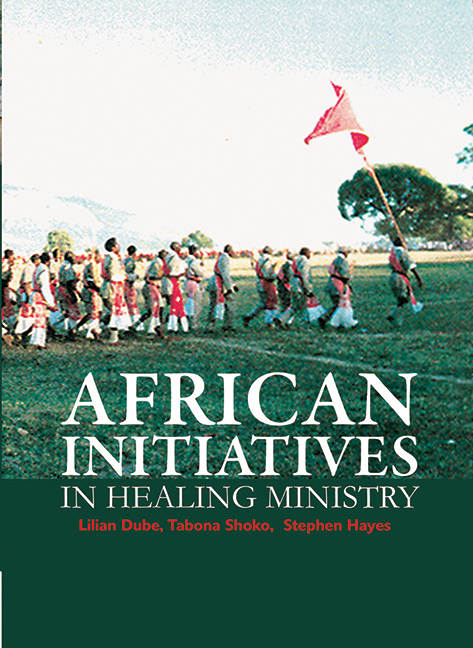Healing in African Initiated Churches
Published online by Cambridge University Press: 28 February 2020
Summary
African Initiated Churches, sometimes called African Independent Churches (AICs) are groups that broke away from the denominations founded by white missionaries, or arose independently of the latter. AICs usually do not have any white members. They are therefore independent of the white conception of the church in the colonial era. They arose around a prophetic figure and draw their members from various churches and from the non-Christian community as well. They range from minute groups to enormous movements with a million or more members. The smaller groups usually appear and disappear because of lack of organisation and motivation; the bigger groups are quite stable, with established church headquarters and well-organised congregations. Among the AICs, some groups follow the doctrines and liturgical patterns of the historical churches they broke away from, while other groups have an original reinterpretation of the gospel message drawing inspiration from both the Bible and African culture. Although a few of these churches are financially stable, especially the bigger churches such as Lekhanyane's Zion Christian Church in South Africa, Johane Maranke's African Apostolic Church in Zimbabwe and the Kimbangu Church in Congo, many smaller ones are poor.
The smaller churches find it difficult to reach out across tribal and national boundaries. With no external ties, and therefore no external donors, they rely on their meagre resources. However, the bigger and richer churches expand across both tribal and national boundaries.
An early example of African initiative in Christian mission south of the Sahara is a woman called Kimpa Vita, renamed Beatrice on baptism, and known as Donna Beatrice. She lived near the town of Sao Salvador in Congo (Angola) in the year 1700. She claimed that the spirit of St Anthony had possessed her. Her preaching was in strong protest against the Catholic Church's formalism and use of crosses, crucifixes and images of Christ which she regarded as new fetishes replacing the old. She proclaimed that Christ had come into the world as an African and had black apostles (Black Christ). The Portuguese authorities imprisoned her and she was condemned to be burnt at the stake as a heretic. She died confessing Jesus (Martin 1971:30–35).
- Type
- Chapter
- Information
- African Initiatives in Healing Ministry , pp. 44 - 53Publisher: University of South AfricaPrint publication year: 2011



